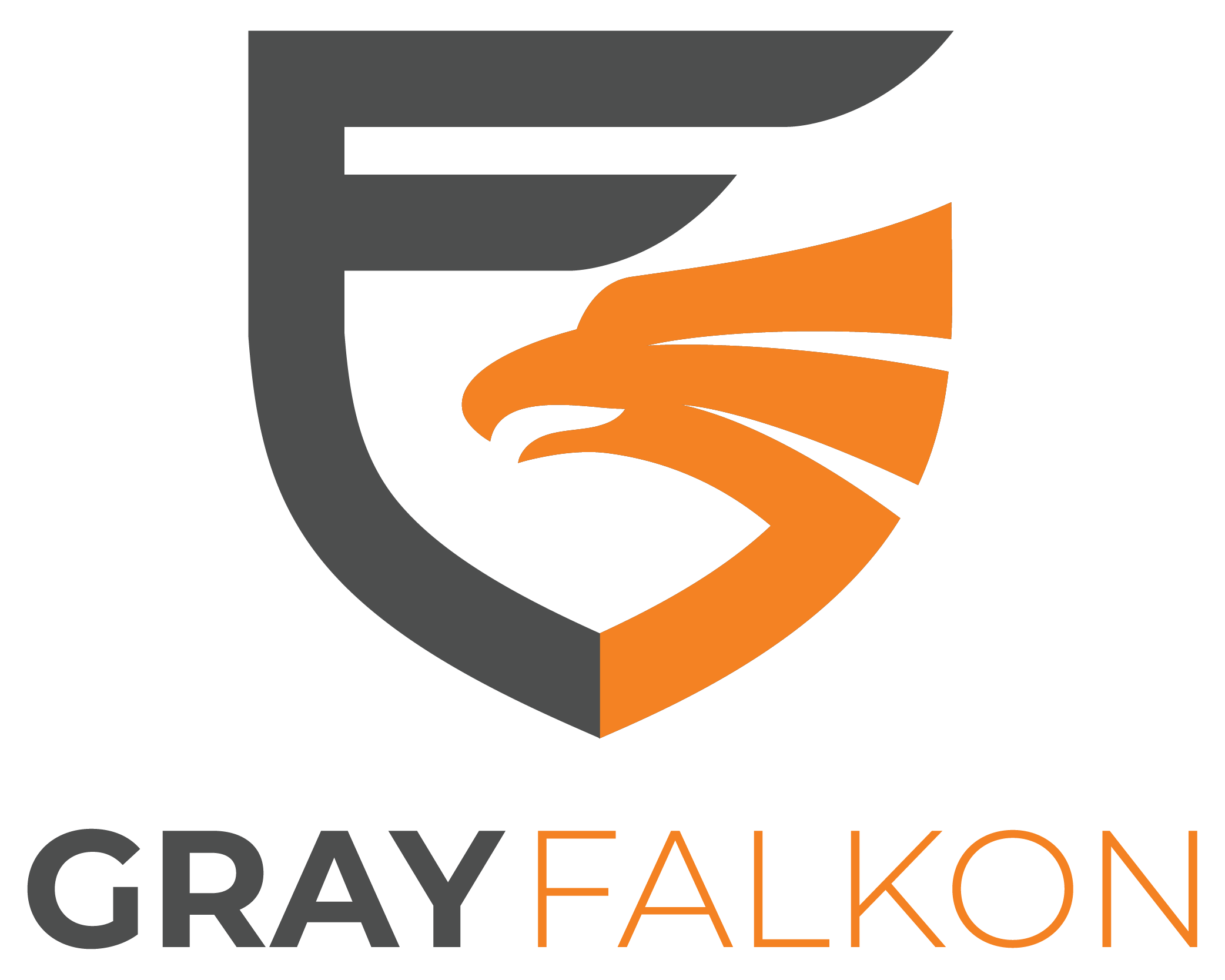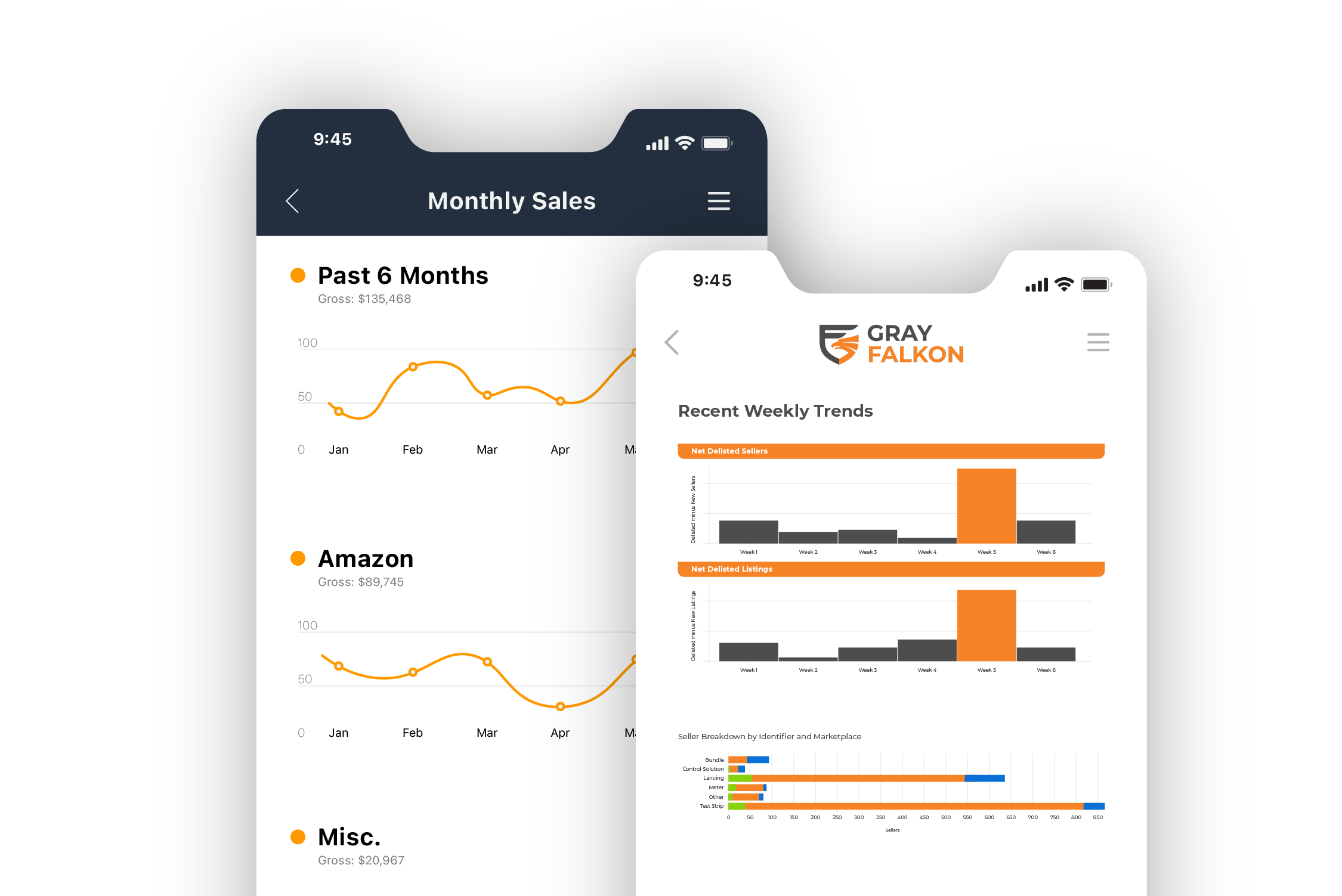
A question we sometimes get from brands seeking to defend their sales and customers from the damage of rogue third-party sellers is, ‘What if we receive a demand letter from a seller’s lawyer?’
Our answer is always, ‘So, what?’ and in this article, I’ll explain why.
Exercise your right to defend your eCommerce brand and protect your customers
Some lawyers have created solid businesses sending threatening notes to brands, but just because an attorney is good at writing an intimidating letter doesn’t make their claims and accusations valid. Sure, there certainly are some tenured attorney groups who’ve built successful practices helping Amazon sellers fight back against unjust accusations and prosecutions. Unfortunately, these tenured attorney groups (much like ‘general practice’ attorneys) will also take a client’s money to send threatening letters even when that third-party seller is completely in the wrong.
Though it’s rare for Gray Falkon to receive these communications, we do receive them – but, so what? These are the facts:
- It’s your mandate to protect your consumers’ experience. (Learn more.)
- Amazon has provided pathways for you to achieve your mandate.
Why a demand letter shouldn’t intimidate you
Let’s talk about these scary letters. First, what is a demand letter? They’re also sometimes referred to as form letters. They appear to be standardized templates that may share exactly the same verbiage as letters from other firms. Most often, these letters accuse brands of unlawfully filing trademark infringement complaints based on the First Sale Doctrine. Fun words they like to use include ‘anticompetitive’, ‘tortious interference’, ‘libel’, etc. They also like to cite successful lawsuits against entities, usually against someone who has made false counterfeit claims.
I scratch my head every time we get one of these form letters. Gray Falkon does not make these kinds of trademark complaints. It’s not what we do. I’m left to assume either a) the attorneys are deliberately not addressing points of the communications we send or b) have not bothered to digest the contents of the notes.
Personally, I’d be very angry to learn that my attorney charged me $1,500 to send a letter and didn’t bother to understand the context and/or make a clear, relevant, pointed argument. If illegitimate third-party sellers want to waste their money on an indefensible position, they can file a lawsuit, but that won’t work either.
The difference with Gray Falkon is we use Amazon policies, not the court system
Want to get involved in litigation? One of the best ways to do that is to threaten a lawsuit. Not a bad outcome if you’re an attorney. After all, it’s what attorneys are trained to do, what they aspire to do.
We do not practice the law. We don’t threaten litigation. We do not operate in the court system.
Instead, our system is 100% focused on the marketplace rules that sellers must follow. My partners are attorneys. They treat marketplace rules as ‘the law’ and the marketplaces themselves are “the courts”. We’ve carefully and deliberately built our system to not just protect your brand, we’ve built it to protect your company from legal risk.
Gray Falkon invites rogue third-party sellers to self-police
Our system informs sellers they are violating one or more of Amazon’s rules and advises them to correct listings to be 100% compliant or risk Amazon sanction. It is not your responsibility to inform sellers which of Amazon’s rules a seller is breaking. It is the sellers’ responsibility to know and obey them. For example, if your warranty is voided in the event of resale, Amazon’s rules state the product sold by the seller is not ‘New’, and must be listed as ‘Like New’. Therefore, third-party sellers of your product in this circumstance must change their listings to ‘Like New’ or be in violation of Amazon’s law.
Sometimes third-party sellers get upset when we notify them that they’re in violation of Amazon’s policies and inform them that we will report their non-compliance to Amazon if they don’t correct or remove their listings. While our messages can be tersely written in order to get the attention of these rogue third-party sellers, the communications are in fact a courtesy and offer fair warning. If sellers do not comply and Amazon takes action against them, the fault is their own.
Gray Falkon files strictly legitimate and well-documented complaints
Amazon has actually expressed appreciation to us for being specific in our enforcement, knowing what they truly care about and providing full documentation when we file complaints. There are some companies that utilize the method of (figuratively) throwing spaghetti against the wall to see what sticks. Other companies use ‘gray hat’ practices, making complaints that are not fully researched and may or may not be true. Other companies will even blatantly file incorrect claims.
We will never operate with anything less than full review, documentation and, in some cases, specific direction from Amazon. In fact, we often quote Amazon policy word for word in our violation reporting.
Gray Falkon never asks for specific action against a third-party seller
When we report issues to Amazon, we explain the complaint, provide documentation as necessary and ask Amazon to ‘take appropriate action’. Amazon itself determines how it will enforce its rules. If we find issues on an ASIN we’ll report it to Amazon. Often Amazon will tombstone the ASIN, so it’s no longer indexed or discoverable, and will tag sellers who have listings on that ASIN. These violation tags can be serious enough to impact third-party sellers’ account health. Those sellers will then complain to us or send threatening notes from attorneys because according to them, they didn’t create the ASINs and shouldn’t be blamed for the violation.
For example, let’s say we’re protecting you from the threatening behavior of Seller X. Seller X is on an ASIN that has clearly violated Amazon’s rules. We warn Seller X that we would report any non-compliance to Amazon if they did not correct or remove listings of your brand. Seller X ignores the warning. We report the issue to Amazon and they decide, on their own, not just to shut down the ASIN but to penalize Seller X for breaking Amazon rules.
Gray Falkon protects your brand and your company
What if an illegitimate third-party seller decides to sue you? Let’s go back to the example above.
Is your brand responsible for Seller X’s rule-breaking? No.
Is your brand responsible for telling Seller X how to get compliant? No.
Is your brand responsible for Seller X’s consequences? No.
Who is responsible? I think you know the answer.
Our entire system is built to be fast, effective and safe for your company. You get to stand up for the rights of your consumers and for your rights as a company. We get the job done without exposing you to legal risk. None of our customers have ever been sued.
Connect with our experts today to discover how we solve the problem differently and more effectively than lawyers can.


